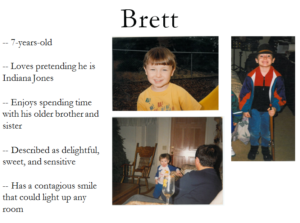 “Transgression speaks to the ungodly within his heart; there is no fear of God before his eyes.”
“Transgression speaks to the ungodly within his heart; there is no fear of God before his eyes.”
Psalm 36:1
Every family has its own unique culture, a structure, and a flavor woven through it that begins with the parental relationship and filters down to the children. Each family culture is defined by priorities, interpersonal relationships, and the power pyramid, which incorporates authority, family rules, boundaries and expectations.
Entire books have been written on this subject, so let’s summarize this dynamic by acknowledging that priorities may include a balance of personal responsibilities and social activities, as well as household expectations that incorporate chores, obligations and cooperation. Some family cultures are obviously healthier than others, and some are downright destructive. In this regard, I have come to believe that abusive households are not merely a less healthy family culture but more akin to a family cult.
To get a better glimpse of the home-based cult dynamic, let’s take a look at some basic descriptors that define a cult and compare it to the structure of an abusive home.
All-knowing leadership. The leader claims to be sent by God to rule and make all decisions. What he thinks and believes is law.
No room for differences. Members must believe exactly the same way and in exactly the same things; there is no room for negotiation or disagreeing with the leader’s rules or doctrines or doing anything outside of the set limitations.
Scriptures get an added twist. Bible verses are often taken out of context or twisted to mean whatever accommodates the leader’s agenda.
All others are wrong. The cult leader asserts that God has given him the role of pointing out “heretical and evil” attitudes and behavior that don’t fall in line with his viewpoint. Furthermore, followers are expected to defend the family structure no matter how rigid, cold, impersonal or impractical it may be.
Works prove faith. The leader often claims his efforts are superior to those performed by everyone else. For this reason, all members of the family must demonstrate absolute abeyance, a commitment to perfectionism, devotion, the preservation of image, and an expectation that all family secrets will be kept.
The high standard applied to family members does not apply to the leader. The leader is exempt from the expectations he imposes on others. Calling attention to the leader’s hypocrisy may result in painful retribution.
Safety is a big unknown. The leader bases his measure of approval of family members on performance and accommodation. Members operate under the constant fear of criticism, judgment and punishment.
No exit. Leaving is not an option. Intimidation and the ever-present threat of physical, emotional, social or even financial pain are used to deter members from escaping. Those who dare to question or leave the overly controlling environment will be condemned as traitors and treated as such.[i]
Although what is described above is consistent with a cult structure, it is also verifiably consistent with the kind of dynamic found in abusive households.
Family members suffering under abusive, dictatorial rule are often deprived of power, permission or resources; therefore, the intent to break free of the family cult comes with a substantial measure of fear and intimidation. Escaping requires:
- a sober recognition of the immoral, irrational dynamic that the cult leader has created in spite of heavy and ongoing indoctrination;
- a courageous willingness to reject the authority of the leader and other family members and his allies; and
- the determination to take the actions necessary to escape under threat of condemnation, demonization, isolation and other forms of emotional or practical punishment.
Those leaving a religious cult will almost certainly be welcomed, embraced and protected by many churches from the cult leader’s influence and his design to reclaim his victim(s), while providing victims with the opportunity to detox, enjoy restoration, and come to a full knowledge of the truth. Unfortunately, when those wishing to flee a destructive, cult-like, abusive family seek out people of faith for support (pastors, Christian counselors and fellow believers), those who might be inclined to aid victims leaving a religious cult may be the very ones who try to prevent victims who are desperate to escape a home-based one.
Christian leaders and counselors should be guardians of truth – and therefore equipped to identify untruth. Sadly, many religious folks tend to rationalize that these small but toxic sects are somehow benign or even valid when it comes to the family cult leaders’ hyper-controlling brand of authority.
Rather than identify the painful reality and support victims in their pursuit of freedom, home-bound cult victims may be encouraged to remain in the abusive environment. We might expect hurting family members to be told that, rather than escaping, they should view their role as some kind of divine calling to be ever more respectful, obedient, encouraging and forgiving toward their leader. In these situations, the powers that me may insist that demonstrating love is more important than rejecting the cult leader’s false teachings and sacraments, his demands for unquestioned loyalty and the fearsome power structure he uses to hold them captive. Only because the man is a husband or a father does he somehow escape scrutiny. This reality is absolutely bizarre, backward and overtly harmful.
It would seem obvious that family members who have lost their identity, their value and their voice to a home-based power-monger-cult-leader could expect to receive support in their pursuit of freedom from those in the body of Christ. If only that was the case.
Thankfully, there are some who “get it,” the passionate few who possess the knowledge, experience and history to be able to identify the dysfunction and the emotional trauma caused by family-based cults. It is these who are willing and able to educate and empower victims, to give the hurting the support and tools they need to escape and reclaim their lives. Of course, I am happy to help, but I would also like to share links to a few other exceptional ministries in this regard:
Speaking Truth in Love Ministries
Emotional Abuse Survivor
Unholy Charade
When you see this cult-like dynamic or anything similar, take the time to encourage potential victims in their quest to get the support they need so they can break free and begin to live healthy, balanced, abuse-free lives.
[i] Don Veinot, “Defining a Cult,” Christianity Today, July/August 2001, accessed internet 6/9/2017; http://www.christianitytoday.com/iyf/2001/julaug/definition-of-cult.html
(Although abusers can be of either gender, the overwhelming majority of abusers are male; therefore, the abuser is referenced in the masculine. The reader’s understanding is appreciated.)
Copyright 2017
Like this:
Like Loading...

 (November, 2013)
(November, 2013) “Transgression speaks to the ungodly within his heart; there is no fear of God before his eyes.”
“Transgression speaks to the ungodly within his heart; there is no fear of God before his eyes.” use to keep their victims living a life of emotional paralysis, 99% of them would probably apply to the man to whom I was married for 20 years. But as I read and hear other women’s stories, other more subtle patterns emerge, and among them is a practice I have struggled to identify even in my own history, a bizarre combination of passive and controlling abuse.
use to keep their victims living a life of emotional paralysis, 99% of them would probably apply to the man to whom I was married for 20 years. But as I read and hear other women’s stories, other more subtle patterns emerge, and among them is a practice I have struggled to identify even in my own history, a bizarre combination of passive and controlling abuse.  “For You have been a defense for the helpless, a defense for the needy in his distress, a refuge from the storm, a shade from the heat; For the breath of the ruthless is like a rain storm against a wall.” Isaiah 25:3
“For You have been a defense for the helpless, a defense for the needy in his distress, a refuge from the storm, a shade from the heat; For the breath of the ruthless is like a rain storm against a wall.” Isaiah 25:3